detail profile zahrat al ola
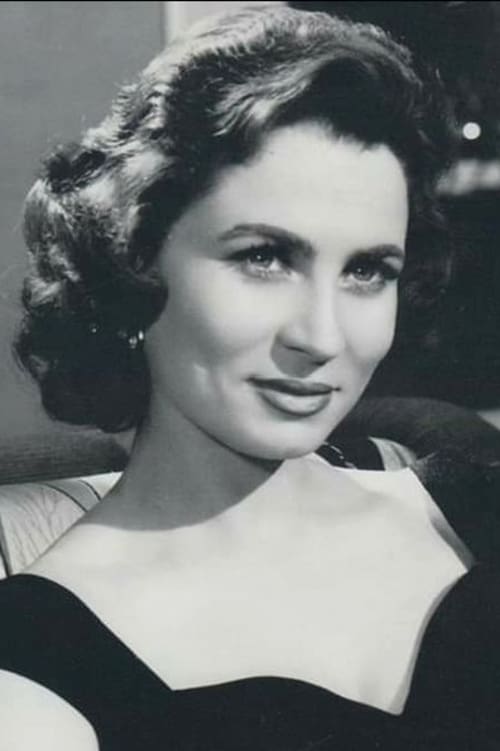
Zahrat Al-Ola
زهرة العلا
atau dikenal sebagai
Riwayat Hidup
Zahra al-‘Oula Bakir was born in the district of Muharram Bey in Alexandia to a family originally from al-Mahala.
Her talents for acting and imitation were apparent when she was in secondary school.
Her father was a friend of Youssif Wahbi and so he presented her to him and she enrolled at the Acting Institute with the help of Zaki Tuleiman.
Zahra acted in several plays including “Hourriyah men al-Mareekh”, “al-Bakheel” (“The Miser”), Mareed bi al-Wahm” (“Illusory Illness”), “Fattish ‘an al-Maraa” (“Look for the Woman”), “al-Ghabi wa Anna” (“The Idiot and Myself”) and “Sab’a Farkhat wa Deek” (“Seven Hens and a Rooster”).
Thereafter she was assigned major cinema roles.
Zahra enjoyed a romantic aura and she received a diploma from the Higher Institute for Cinema in 1954.
Zahra was the first in her class and she continued her stage career on modern theater.
Zahra married Salah Zu al-Faqqar and later director Hassan al-Saifi.
Among the television series which she has acted in are “Waffiyat Nas Tayebeen”.
Zahra was honored at the Feature Films Festival.
While a youth, Zahra represented the model of the innocent and suppressed girl.
She has not portrayed any evil characters as her appearance does not lend itself to such roles.
Zahra also acted in “Radd Qalbi”, “Du’aa al-Karwan” and “Tareeq al-Amal”.
Despite the fact that she has acted in some comedies her roles were generally not comedic.
Info Pribadi
Peran Yang Di Mainkan Zahrat Al-Ola
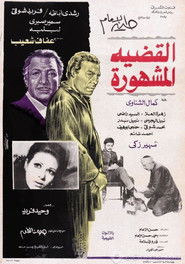 Jasser sneaks into Yassins house to...
Jasser sneaks into Yassins house to...Al-Qadeya Al-Mashhora 1978
Jasser sneaks into Yassin's house to steal, but he senses a strange movement, as Saadia, the servant Ibrahim's wife, tries to find out who is in the house, so he kills her and Yassin. During that, Ibrahim arrives, and his daughter Naima testifies against him after seeing him holding a knife next to her mother's body, so he is imprisoned, and events escalate.
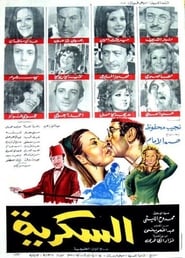 The film revolves around the family...
The film revolves around the family...Al Sokkareya 1973
The film revolves around the family of Mr. Ahmed Abdel-Gawad through his second and third generations, which consists of Yassin and Kamal the younger son, and the sons of Aisha / Khadija, in the age of young people and political and social transformations and their impact on their maturity and life paths.
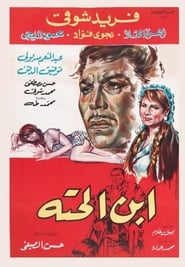 Exploiting the great resemblance between Ashour...
Exploiting the great resemblance between Ashour...Ebn El-Hetta 1968
Exploiting the great resemblance between Ashour El-Aaghati and actor Farid Shawky, director Mahmoud Al-Badrawi decides to use him in many scenes. At the same time, Ashour relates to his neighbor Najat and decides to marry despite all the attempts of the master, the owner of the cafe, to stand in the way of their love. At the same time, a painful accident occurs to the artist Farid, leading to his death, and director Mahmoud decides to use Ashour as an alternative, declaring that the actor will not die.
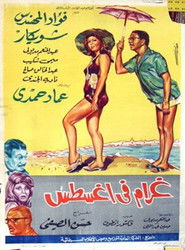 Salwa lives happily with her fianc...
Salwa lives happily with her fianc...Love in August 1966
Salwa lives happily with her fiancé, but on the wedding night she suffers a psychological trauma, as the husband dies in a car accident, and Salwa escapes death, days pass and the girl does not forget the accident until she is surprised that her husband has not died, when she meets Farid, who is similar to her husband, and deals with him However, as her husband, Farid tries to convince her of the truth, but she is not at all convinced.
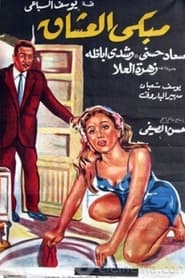 A young engineer whose wife dies...
A young engineer whose wife dies...مبكى العشاق 1966
A young engineer whose wife dies in a car accident, and leaves his young daughter, and because he is an petroleum engineer, he has to be absent from the house, so he brings a maid to the house, and takes her with him to his home in Suez where he works, on one of the nights he drunk, the engineer rapes the maid, and when she carries the fetus he requests Among them is the speed of getting rid of it, and when he presents it to the doctor, the latter informs him that abortion is dangerous for her life, which puts the man in a crisis.
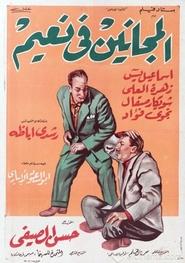 A madman exposes humanitys insanity Andeel...
A madman exposes humanitys insanity Andeel...El Maganeen Fi Naeem 1963
A madman exposes humanity’s insanity. Andeel leaves a mental hospital after 10 years of treatment are over to face the world again. Whenever he reveals that he used to be a mental patient, he is faced with aggressive suspicion, cruelty and rejection. When a shop owner refuses to hire him, he yells that he is the only one with an official certificate that proves he is actually sane. We follow his miserable search for a job and watch situations in which, over and over again, he gets very close to a decent life just before his unrestrained tongue reveals a side of his madness that freaks people out. Andeel is an honest, kind person who’s good at what he does, but people’s uncontrollable fear of madness makes them want to get rid of him and the uncomfortable state he puts them in, probably because of how normal he seems, just like them, yet how crazy he is, like they fear they might be.
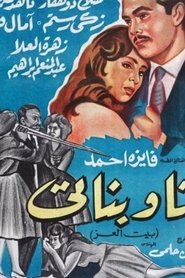 A widowed man lives with his...
A widowed man lives with his...me and my daughters 1961
A widowed man lives with his four daughters, but he always preventing them from mixing or working, and when the father goes out on pension, he decides to invest his reward in a company that he later discovers has seized his money, so he falls down the stairs and enters the hospital injured, and the daughters are forced to go down to work.
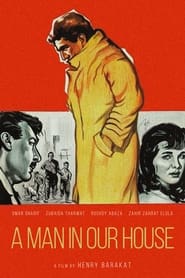 A Man in Our House is...
A Man in Our House is...A Man in Our House 1961
A Man in Our House is a 1961 Egyptian film about the resistance to British rule in Egypt which ended in the exile of King Farouk in 1954 and the rise to power of Gamal Abdel Nasser.
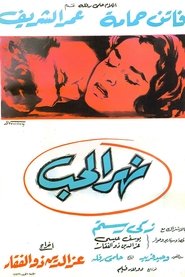 Nahr el Hub is the Egyptian...
Nahr el Hub is the Egyptian...The River of Love 1960
Nahr el Hub is the Egyptian adaptation of Leo Tolstoy's "Anna Karenina".
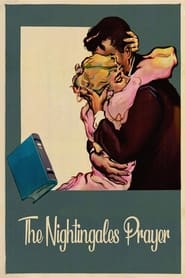 This compelling tale of love and...
This compelling tale of love and...The Nightingale's Prayer 1959
This compelling tale of love and betrayal, set in the upper Egyptian countryside, follows the story of Amna as she plots her revenge on the engineer who destroyed her family's honor.
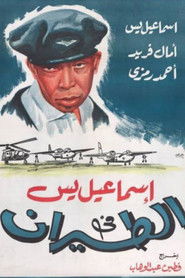 Ismail El Ghandoor works as a...
Ismail El Ghandoor works as a...Ismail Yassine in the Air Force 1959
Ismail El Ghandoor works as a stuntman and a small time actor in movies. He falls in love with a young belly dancer, Soheir who dreams of being the wife of a pilot. Ismail dresses up in his brother Hussein’s clothes as a pilot in the force while his brother is away on his honeymoon. When Hussein returns the truth is revealed, and each of them goes back to his real job. Will Soheir accept the real Ismail or will she continue to pursue her dream of marrying a pilot?
 Djamila a young Algerian woman living...
Djamila a young Algerian woman living...Jamila, the Algerian 1958
Djamila, a young Algerian woman living with her brother Hadi and her uncle Mustafa in the Casbah district of Algiers under the French occupation of Algeria, sees the full extent of injustice, tyranny and cruelty on his compatriots by French soldiers. Jamila's nationalist spirit will be strengthened when French forces invade her university to arrest her classmate Amina who commits suicide by ingesting poison. Shortly after the prominent Algerian guerrilla leader Youssef takes refuge with her, she realizes that her uncle Mustafa is part of this network of anti-colonial rebel fighters. Her uncle linked her to the National Liberation Front (FLN). A series of events illustrate Jamila's participation in resistance operations against the occupier before she was finally captured and tortured. Finally, despite the efforts of her French lawyer, Jamila is sentenced to death...
 In Egypt forties and before the 14...
In Egypt forties and before the 14...Return My Heart 1957
In Egypt forties and before the 14th of July revolution in 1952, a poor family lives in a prince's palace where the father works as a gardener. The family has two children Ali and Hassan. Ali grows up liking the prince's daughter who loves him too. Now grown ups, they realize how impossible this love story is. Joining the army, Ali fights in Palestine while the brother joins the police and is part of the King's guards. Ali gets back from Palestine and joins the secret military movement that will soon rule Egypt, The Free Officers. The revolution starts and the Free Officers are now in charge, putting Ali against his brother as a guard for the king and also against his lover, the prince's daughter as the revolution will confiscate all her family's wealth.
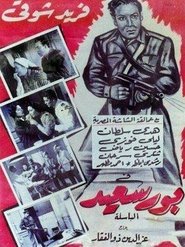 The events take place during the...
The events take place during the...Port Said 1957
The events take place during the tripartite aggression against the city of Port Said, through the spy network of the British Intelligence, in which Pat (Laila Fawzi) works, while Al-Ambashi Talbah (Farid Shawqi) leads the resistance group, and the resistance men confront the aggression and vile conspiracies led by traitors and spies.
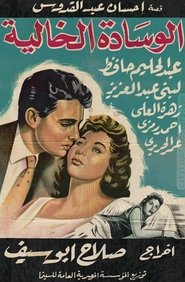 Salah a young college student falls...
Salah a young college student falls...The Empty Pillow 1957
Salah, a young college student, falls in love for the first time with Samiha. He spends his nights thinking about her and looking to her face in the “empty pillow” next to him. When she marries someone else, he is devastated and her memory haunts him no matter where he goes.
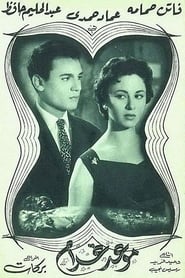 Faten Hamama plays Nawal a journalist...
Faten Hamama plays Nawal a journalist...Appointment with Love 1956
Faten Hamama plays Nawal, a journalist who meets Samir, a young man whom she encourages to pursue a singing career. His career takes off while Nawal's health deteriorates.
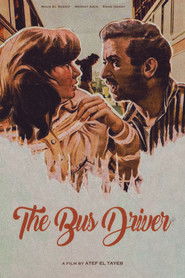 A father loses his carpentry workshop...
A father loses his carpentry workshop...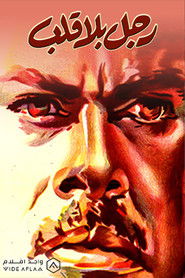
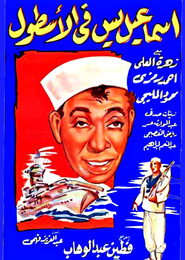 The film revolves around a young...
The film revolves around a young...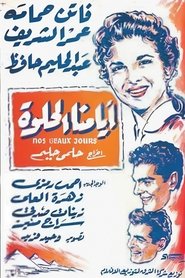 A poor girl lives on the...
A poor girl lives on the...